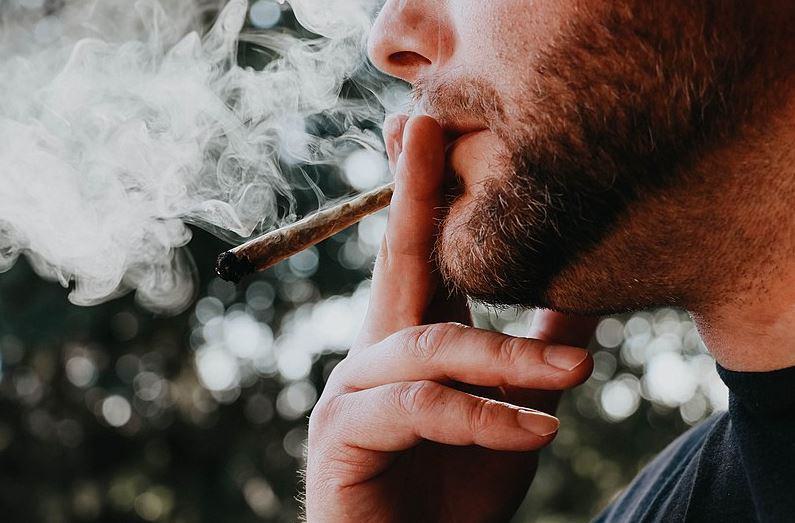“Five years of Prohibition have had, at least, this one benign effect; they have completely disposed of all the favorite arguments of the Prohibitionists. None of the great boons and usufructs that were to follow the passage of the Eighteenth Amendment has come to pass. There is not less drunkenness in the Republic, but more. There is not less crime, but more. There is not less insanity, but more. The cost of government is not smaller, but vastly greater. Respect for law has not increased, but diminished.”
The war on pot is lost. It was lost long ago. And it’s high time prohibitionists admitted the truth: pot fought the law, and pot won.
Yet, like most recent American wars, the war on pot continues. Despite a slow, shameful defeat, the federal government insists on executing a long drawn-out retreat that becomes more farcical by the day.
Much like the wars in Afghanistan and Ukraine, the feds continue to explain away the failure of their pot prohibition campaign as proof positive that being on the right side of history is never easy. Lost causes must always be dolled up in moral preening. The notion that the war on pot was always on the wrong side of history for moral and practical reasons is never entertained by those devoted to the losing struggle.
It’s not just the feds who feign to fight this moral crusade against the devil’s lettuce. After all, every retreating army needs a courageous rearguard regiment, and Alabama has been more than happy to bring up the rear against reefer’s slow advance. The rule of law may be up in smoke, yet some in the Heart of Dixie refuse to get the joke.
Don’t kid yourself; it’s a joke that the law stops Alabamians from buying cannabis. The law itself is a joke, but so too is the idea that the law stops anyone in Alabama from firing up a fatty.
We still have de jure laws in Alabama prohibiting pot, but the de facto state of these laws suggests smoke 'em if you got 'em. As the delta between what the law says and how it is upheld grows greater, the more it makes a mockery of justice, unnecessarily limiting economic opportunity to the shadows.
Indeed, “the rule of law” may be the greatest casualty in this never-ending failed war on marijuana.
Through an informal process of change in cultural attitudes, the laws against cannabis have slowly lost their legitimacy with law enforcement, the latter also losing trust and respect along the way. The formal law is now selectively enforced with little threat of serious punishment. This is progress of a kind for the cause of liberty, I suppose – yet the continued arbitrary and flaccid enforcement also makes the law seem more unjust for those few unlucky souls who suffer government harassment for possessing pot.
That said, for anyone willing and able to run such risks of buying their weed illegally, this may prove an optimal scenario, wherein the authorities pretend to regulate the potheads while the potheads pretend to be regulated by the man. Funny enough, this legal gray area probably allows for more individual liberty and a greater free market than any outright weed legalization scheme. Informal delegitimization of the law is often a more effective strategy than any formal legalization process, especially when dealing with an entrenched government bureaucracy resistant to change.
Accordingly, cannabis legalization schemes are too often rife with artificial scarcity and high-cost barriers to entry through an overly burdensome regime of taxes, fees, and regulations that effectively enshrine the oligarchic trading of special privileges into law. Just look at Alabama’s attempt to legalize “medical marijuana.”
The incredibly restrictive and heavy-handed regulatory system called for by the 2021 Compassion Act has yet to become operational two years after being signed into law. The system has unsurprisingly proven difficult to stand up, creating a flurry of lawsuits against the Alabama Medical Cannabis Commission (AMCC). There is no need to accuse anyone on the commission of malfeasance. Given the way this legal regime was designed, such “inefficiencies” were bound to be a feature, not a bug – no matter who was in charge of its implementation.
Yet, even as the AMCC struggles to implement the Compassion Act, plenty of cannabis has been bought and sold in Alabama, illegally but easily. Even after the medical cannabis industry becomes fully operational in Alabama, I suspect plenty more cannabis will be bought and sold in the state, again, illegally and easily. Even though the federal government still considers marijuana a Schedule 1 drug under the Controlled Substances Act — defying common sense — hundreds of billions dollars’ worth of marijuana is still bought and sold daily in America, illegally and easily.
Advocates of cannabis use often overstate the benefits and downplay the costs of the drug. Like anything else, cannabis can be abused to deleterious effects on health and well-being, affecting some more adversely than others. But the last remaining pot prohibitionists make a similar mistake. They, too, overstate the benefits of prohibition while downplaying its costs and effectiveness. As demonstrated in the 1920s under alcohol prohibition, respect for the law under pot prohibition has not increased but diminished.
Indeed, when the law becomes a joke, there might as well be no law at all.
The views and opinions expressed here are those of the author and do not necessarily reflect the policy or position of 1819 News. To comment, please send an email with your name and contact information to Commentary@1819news.com.
Don’t miss out! Subscribe to our newsletter and get our top stories every weekday morning.









